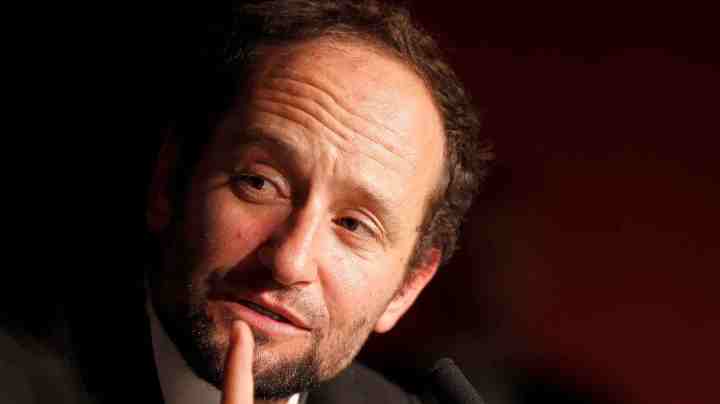Carlos Reygadas’ Directing Master Class Canceled After Protests Amid Sexual Abuse Allegations

Carlos Reygadas, winner of the award for Best Director for 'Post Tenebras Lux' attends the Winners Press Conference during the 65th Annual Cannes Film Festival on May 27, 2012 in Cannes, France. Photo by Andreas Rentz/Getty Images
Carlos Reygadas, a critically acclaimed Mexican director and alleged perpetrator of sexual assault, is currently under fire. His recent master class at El Festival Internacional de Cine en el Desierto, a four-day festival in Hermosillo, was interrupted by protesters and canceled as a result.
The talk – which featured the tagline, “Film as a form of existence; a way to leave behind the dramatic scheme” – took a dramatic turn when a group of young protestors reportedly occupied the rear part of the room at the Foro de las Artes in Universidad de Sonora. At the beginning of the lecture-style talk, they chanted, “Violador, violador, no te vas a escapar, violador.”
Distressing images on social media also showed a sign held by one of the protesters, which detailed the allegation made by assistant director Yupi Segura. “He told me to take off my shirt and show him my boobs because ever since he saw me he’d been ‘thinking about taking me and coming in my mouth’…,” the sign read in Spanish. “I tried opening the door but it was locked. I knocked like crazy while that man pressed his body against mine.”
Bruno Soto, a 23-year-old in attendance, described the atmosphere in the room as containing “an air of [palpable] discomfort,” since many in attendance (himself included) were unaware of the accusations. “That feeling then evolved into frustration, and many people began to leave,” Soto told Remezcla. “Either because they were uncomfortable [or] because they [realized they] were in a talk with a rapist who the festival was concealing… There were mixed opinions.”
Though there were several Mexican media outlets present, Soto’s off-the-cuff recording is the one making the rounds. La Universidad de Sonora had a video team present, but they have yet to release footage or comment on the matter. The demonstrators wore Salvador Dalí masks, as seen on Spanish series La Casa de Papel, and green handkerchiefs, in reference to the right to choose/pro-abortion movement.
The Nuestro Tiempo (Our Time) director remained silent throughout.
So far, all accusations are unverified and have been made through third parties. No formal complaints have been filed with police at the time of publication. Instead, alleged victims have taken to social media and this public gathering to make their stories known, albeit anonymously.
The website in which the now-deleted stream of the talk once lived, also used to promote the event prior to the protest, refers to the 47-year-old as “very well likely Mexico’s most important film artist of this century.”
Regardless of whether that’s true or not, these allegations are not the first of their kind and the lack of proper investigation, as well as possible shielding and continued formal recognition, leaves much to be desired when it comes to the response from the film community at large. In April, Reygadas was nominated in various categories for the Academia Mexicana de Artes y Ciencias Cinematográficas (aka Premios Ariel, aka Mexico’s version of the Oscars). At the time, the #MeTooCineMexicano movement was in its early stages. Me Too Cine Mexicano’s Twitter account stated that he appeared on their list of accused perpetrators of violence against women and expressed their bewilderment at the potential implications of the nominations. “Will we keep normalizing gender violence in the cinematic industry?” they wrote. “Why does [this] one name, openly signaled, keep reappearing in lists of nominees? When will we generate a process that is conscious and legitimate regarding the importance of making these violent accusations visible? When will we guarantee the human rights of each and every woman who is involved in this industry?”